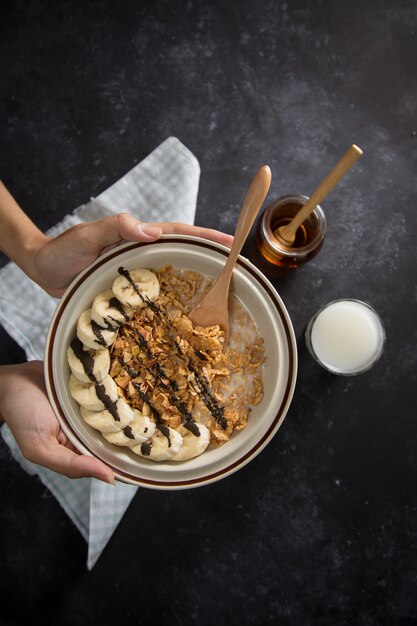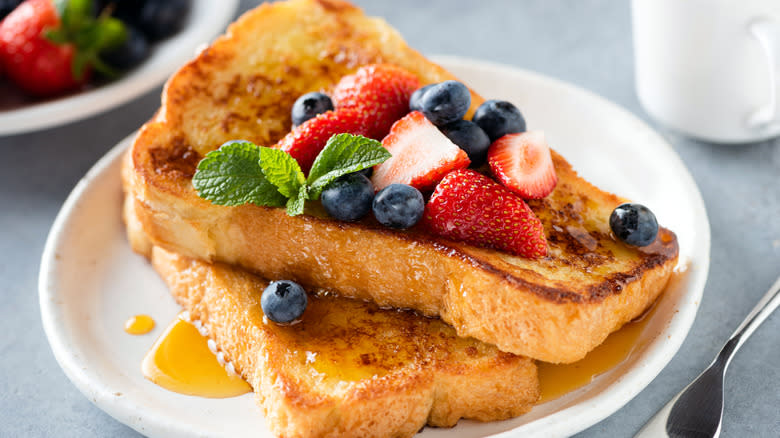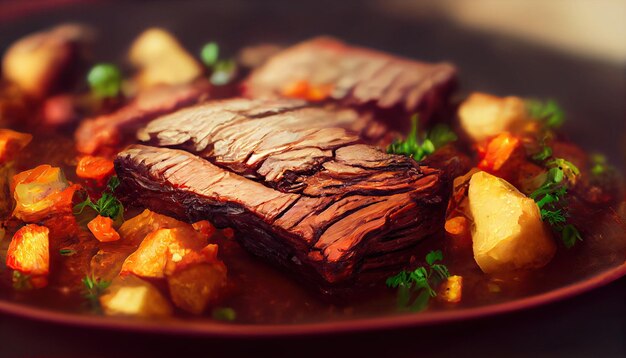In a world where fitness and wellness are often prioritized, achieving a balanced physique can sometimes feel like a challenging puzzle. Individuals looking to increase their mass and vitality must navigate a plethora of choices that cater to their specific needs and goals. Emphasizing the right elements in one’s diet can lead to substantial improvements in physical performance and overall health.
Crafting a tailored regimen involves more than merely selecting high-calorie foods; it requires a thoughtful combination of macronutrients and micronutrients that fuel the body effectively. By understanding the significance of each component in daily intake, one can create a strategy that not only promotes growth but also enhances energy levels and recovery.
In this article, we delve into a structured outline designed to facilitate this journey. With a selection of nourishing ingredients and suggestions for optimal consumption, readers will find guidance on how to incorporate the necessary elements into their daily routine, ensuring that every meal contributes to their desired outcomes.
Understanding Healthy Weight Gain
Gaining mass in a balanced manner involves more than simply increasing caloric intake; it requires a comprehensive approach that prioritizes wholesome eating habits and nutritional variety. This process can help individuals achieve their desired physique while also ensuring that their bodies receive essential vitamins and minerals necessary for optimal functioning.
The Fundamentals of Building Mass
To successfully add mass, it is crucial to focus on consuming nutrient-dense foods rather than processed items. A diet rich in whole foods can aid in the gradual increase of muscle and overall body weight. This entails understanding the role of macronutrients, vitamins, and minerals in supporting bodily systems and promoting growth.
Essential Components
| Nutrients | Examples | Benefits |
|---|---|---|
| Proteins | Chicken, Fish, Beans | Supports muscle development and repair |
| Carbohydrates | Whole grains, Fruits, Vegetables | Provides energy for daily activities and workouts |
| Fats | Nuts, Avocados, Olive oil | Essential for hormone production and nutrient absorption |
By prioritizing a balance of these key nutrients, individuals can create a solid foundation for their journey toward increased mass while supporting overall health and wellness.
Essential Nutrients for Muscle Growth
Building muscle mass requires not only consistent training but also a well-rounded intake of specific components that support development and recovery. Understanding the vital elements that play a role in this process can significantly enhance results.
The following nutrients are fundamental for promoting muscle hypertrophy:
- Proteins: Critical for repair and growth, protein sources, such as lean meats, eggs, dairy, legumes, and nuts, should be prioritized in your diet.
- Carbohydrates: Providing the energy necessary for intense workouts, complex carbohydrates like whole grains, fruits, and vegetables are essential for optimal performance and recovery.
- Healthy Fats: Essential fatty acids support hormone production, including testosterone, which is vital for muscle growth. Include sources such as avocados, olive oil, and fatty fish.
In addition, certain vitamins and minerals can further assist in muscle development:
- Vitamin D: Helps in calcium absorption, which is vital for muscle contractions.
- Magnesium: Plays a key role in muscle function and recovery.
- Zinc: Supports protein synthesis and overall immune function.
Incorporating a variety of these nutrients into your diet will not only support muscle growth but also overall health and well-being. Balance and moderation are key to achieving the best results in your fitness journey.
Meal Timing for Optimal Results
Understanding the significance of timing with regards to food consumption can greatly enhance the outcomes of your dietary strategy. The moments when you choose to eat can influence not only how you feel but also how effectively your body uses the nutrients you provide. By aligning your intake with your daily routine and physical activity, you can maximize the benefits of your dietary efforts.
Strategic Eating Windows
Identifying the best times to consume your meals can lead to improved energy levels and muscle development. Incorporating regular intervals between eating sessions helps maintain stable blood sugar levels, preventing energy crashes. Aim to distribute your intake across the day to ensure consistent nourishment. This allows your body to utilize the calories efficiently, especially in relation to your exercise patterns.
The Role of Pre- and Post-Activity Consumption
Specific timings around physical exertion are critical. Prior to engaging in workouts, fueling your body with the right types of foods can enhance performance and endurance. Post-activity, focusing on replenishing nutrients supports recovery and aids in muscular repair. Prioritizing these windows can substantially affect your results, making your efforts more effective.
Listening to your body is also essential in this process. Everyone’s rhythms are different, so adapting your schedule to align with your individual needs can yield the best outcomes.
Sample High-Calorie Meal Ideas
When seeking to elevate caloric intake, it’s beneficial to focus on nutrient-dense options that provide both energy and satisfaction. Here are some creative ideas that can effortlessly boost your daily caloric consumption while still being delicious and varied.
- Breakfast Options:
- Overnight oats prepared with whole milk, nut butter, and topped with bananas and chia seeds.
- Scrambled eggs with cheese, avocado, and whole grain toast.
- Protein-packed smoothie with Greek yogurt, fruits, spinach, and an added scoop of protein powder.
- Lunch Ideas:
- Creamy pasta salad with chicken, olive oil, olives, and sun-dried tomatoes.
- Quinoa bowl with black beans, corn, diced avocado, and a drizzle of lime dressing.
- Stuffed whole grain wrap with turkey, hummus, lettuce, and various vegetables.
- Dinner Selections:
- Grilled salmon served with a side of buttery mashed potatoes and sautéed greens.
- Stir-fried beef with rice, assorted vegetables, and a generous amount of sesame oil.
- Chili made with ground turkey, beans, and topped with shredded cheese and sour cream.
- Snack Ideas:
- Trail mix with nuts, dried fruit, and dark chocolate pieces.
- Peanut butter toast with sliced strawberries or apples.
- Full-fat yogurt topped with granola and honey.
Incorporating such delectable offerings into daily routines can significantly enhance energy levels while providing essential vitamins and minerals. Emphasizing these types of choices can lead to a fulfilling and varied diet.
Incorporating Snacks into Your Diet
Including small bites throughout the day can significantly enhance your overall dietary regimen. These nourishing additions not only help in meeting caloric needs but also serve to balance meals and curb hunger. It is important to choose options that are both satisfying and nutrient-dense, ensuring you receive essential vitamins and minerals along with your energy intake.
Benefits of Smart Snacking
Choosing wholesome snacks provides several advantages. They can improve metabolic rates, stabilize blood sugar levels, and help maintain energy throughout the day. Moreover, opting for good snacks can prevent overeating during main meals, making it easier to manage portion sizes and avoid unhealthy choices when hunger strikes.
Snack Ideas to Include
When selecting snacks, aim for a combination of carbohydrates, proteins, and healthy fats. Consider options like Greek yogurt with fruit, nut butter on whole-grain toast, or a mix of nuts and dried fruits. Additionally, vegetable sticks with hummus or cottage cheese with berries can serve as tasty and nourishing choices that keep you satisfied.
Monitoring Progress and Adjustments
Keeping track of advancement is essential on any journey toward enhanced well-being. Regular assessments allow individuals to understand their current status, recognize achievements, and identify areas that may need modification. By evaluating various factors, one can make informed decisions to optimize individual strategies.
It is advisable to maintain a detailed record of daily consumption and physical changes. This could include noting meals, snacks, and beverages, as well as changes in strength and endurance during physical activities. Utilizing a journal or a digital app can provide motivation and clarity.
If progress seems slower than anticipated, consider revising the routine. Adjustments may include altering caloric intake, selecting diverse food types, or modifying exercise patterns. Consultation with a registered dietitian or health professional can offer personalized insights and recommendations to suit individual needs.
It is crucial to remember that every person’s body responds differently to dietary changes. Patience and consistency are key, as some may notice improvements more swiftly than others. Regular evaluations not only foster accountability but also promote a deeper understanding of one’s unique journey.
Q&A: Healthy weight gain meal plan
How can a 7-day meal plan help you gain weight in a healthy way, and what foods like broccoli can support your goals?
A 7-day meal plan designed for weight gain focuses on consuming more calories than you burn while maintaining balanced nutrition. Foods like broccoli, although low in calories, can be paired with calorie-dense ingredients such as olive oil, nuts, and cheese to increase calorie intake. Each meal in the plan should include a balance of calories and protein to help you build muscle mass effectively. For example, adding 1 cup of broccoli to a dish with chicken breast, quinoa, and avocado can provide essential nutrients while contributing to overall caloric intake. Consistent protein intake throughout the week is also crucial for supporting muscle repair and growth.
Why is consuming more calories and protein essential when you want to gain weight, and how can it prevent losing weight unintentionally?
When you want to gain weight, consuming more calories than you burn is essential for creating a caloric surplus, which supports weight gain instead of losing weight. Calories and protein play a vital role in this process, as protein intake helps repair and build muscle tissue, especially when combined with strength training exercises. Including calorie-dense foods like nuts, avocados, and lean meats ensures you’re meeting daily caloric goals. For example, adding 1 cup of broccoli as a side dish to a high-protein meal contributes essential nutrients without excessive bulk, supporting consistent calorie intake throughout a 7-day weight gain plan.
What role do high-calorie and protein-rich foods play in a 7-day weight gain plan, and how can they be incorporated effectively?
High-calorie and protein-rich foods are fundamental to a 7-day weight gain plan because they provide the energy and building blocks necessary for muscle growth and overall weight gain. Foods like chicken breast, nuts, quinoa, and dairy products are excellent sources of both calories and protein. For instance, pairing 1 cup of broccoli with grilled chicken breast, sweet potatoes, and olive oil creates a nutrient-dense meal. These ingredients not only help you build muscle but also ensure you’re consuming more calories than you burn. Consistency with these types of meals across the 7-day plan is essential for sustainable weight gain.
How can a structured 7-day meal plan help you gain weight while maintaining balanced nutrition and adequate protein intake?
A structured 7-day meal plan helps ensure you’re consuming enough calories and protein consistently throughout the week to support weight gain. Each meal should include nutrient-dense foods like broccoli, chicken breast, rice, and nuts, which are high in protein and calories. For example, adding 1 cup of broccoli to a stir-fry with tofu, brown rice, and sesame oil creates a balanced dish. Proper protein intake helps repair and build muscle tissue, while calorie-dense meals ensure you consume more calories than you burn. A well-planned routine prevents nutritional gaps and supports steady weight gain without relying on processed or unhealthy foods.
How can a 7-day weight gain meal plan help support your weight gain goals, and what are some key components of this eating plan for weight gain?
A 7-day weight gain meal plan is designed to help you eat more calories consistently while maintaining a balanced diet. The plan includes nutrient-dense foods like whole grain bread, almond butter, feta cheese, and smoothies made with 1 cup of whole milk. A typical meal might be a sandwich on whole grain bread topped with feta cheese, paired with a handful of mixed nuts for additional calories. To support your weight gain goals, meals are planned to provide extra calories and protein to help you gain muscle and prevent unintentional weight loss. Following such a structured plan can help you meet your goals effectively.
Why is it important to eat more calories and protein in order to gain weight, and how can specific foods support this goal?
To gain weight, you need to eat more calories than your body burns daily. Extra calories and protein are essential for building muscle mass and supporting overall body weight per your goals. Foods like almond butter, feta cheese, and whole grain bread are calorie-dense and nutrient-rich, making them ideal choices for those trying to gain weight. Smoothies made with 1 cup of whole milk and topped with additional healthy fats can also provide a concentrated source of calories per serving. These foods can help you meet your goals while maintaining a healthy and balanced diet.
What are some of the best foods to gain weight, and how can they be included in a healthy eating plan for weight gain?
Some of the best foods to gain weight include whole grain bread, almond butter, feta cheese, whole milk, and calorie-dense snacks like a handful of mixed nuts. These foods are rich in extra calories and protein, which are essential for supporting weight gain goals. For example, a sandwich on whole grain bread with almond butter and banana slices provides a calorie-dense meal. A smoothie made with 1 cup of whole milk and protein powder can be an effective way to add additional calories. Including these foods in a healthy eating plan ensures consistent weight gain without relying on processed or sugary foods.
How can a dietitian help create a personalized plan for weight gain, and what factors might they consider in designing a balanced diet?
A dietitian can help create a personalized plan for weight gain based on your specific calorie needs, food preferences, and health conditions. They consider factors like height and weight, activity levels, and any underlying medical condition that increases your calorie needs. A balanced diet designed by a dietitian may include calorie-dense meals like smoothies made with whole milk, sandwiches on whole grain bread, and snacks such as a handful of mixed nuts. The plan may be beneficial in preventing unintentional weight loss while helping you reach your goals in a structured and sustainable way.



